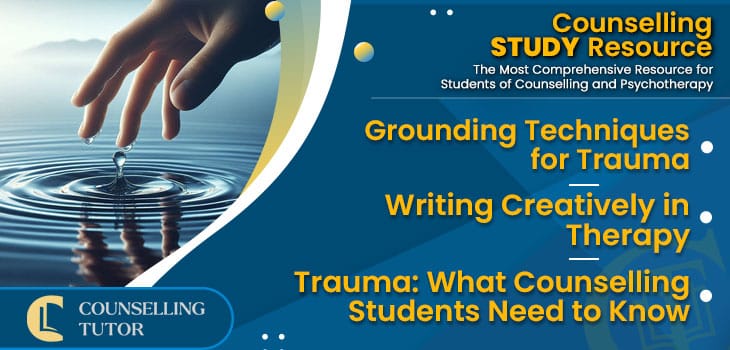See Counselling Skills Used in Real Sessions by Qualified Therapist
Real Sessions – Real Presentations – Real Skills
Gain the competence and confidence to use counselling techniques effectively!

In Episode 308 of the Counselling Tutor Podcast, your hosts Rory Lees-Oakes and Ken Kelly take us through this week’s three topics:
Grounding Techniques for Trauma
Grounding techniques are an essential skill when working with clients affected by trauma. In this section, Rory and Ken discuss when we can put grounding techniques into action, and their impact:

Real Sessions – Real Presentations – Real Skills
Gain the competence and confidence to use counselling techniques effectively!
In this week’s ‘Practice Matters’, Rory speaks with Dr Jessica J. Clapham about writing creatively in therapy and its benefits to well-being.
The key points of this discussion include:

On-demand access to a rich lecture library covering theory, skills, and professional development for counselling students—Mapped to the UK awarding body criteria
“The Student Library has been BRILLIANT, I can’t recommend it enough!
It has been a lifeline in helping me prepare for practice and my first clients. If you’re considering it, go-for-it, it’s absolutely worth it!”
Kelly – Graduated and now in practice.
Trauma is something that isn’t focused on during the foundations of counselling studies, but during placement, it’s possible you might come across it. In this section, Rory and Ken give an overview of the importance of gaining knowledge about trauma in the therapy room:
Grounding Techniques for Trauma

Get on-demand Certified CPD that is implementable in your practice
